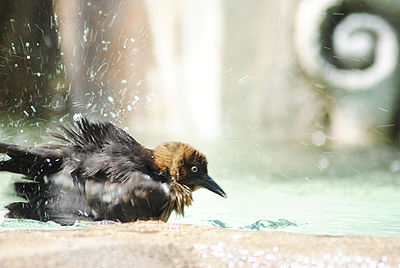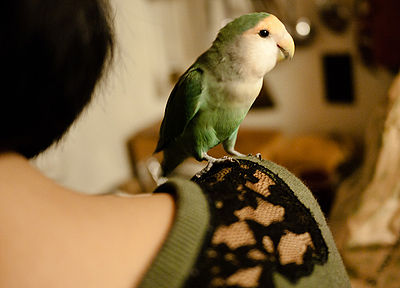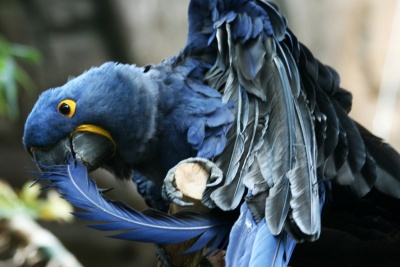
Each summer parts of the world see record-breaking temperatures causing wildlife and humans much suffering.
Birds are not exempt from the dangers of overheating and dehydration. Pet birds are accustomed to living indoors where temperatures can usually be moderated. But at times of electrical outages, we have to be prepared to see that our birds are taken care of.
Birds don’t have sweat glands and use their feathers to insulate against heat and cold. If that doesn’t help, the situation can become serious. Birds that become dehydrated will show neurological symptoms such as head tilting and losing the ability to sit or fly. In extreme instances a bird can topple over, become comatose and die.
Another sign to look for if a bird is feeling heat stress is fluffing the feathers which provides insulation against the weather. If your bird begins to pant or feathers are hanging limply, then your bird is having difficulty controlling its temperature.
You can help your bird avoid overheating and heatstroke using a few simple suggestions. Don’t take your bird outdoors in extreme heat. If you take your bird on errands, don’t leave him/her in the car. Temperatures in cars heat up dramatically in summer and pose dangerous situations. Don’t place your bird in front of a fan or air conditioner. Drafts from these machines are as bad as the heat. Mist your bird a few times during the day.
If you have an outdoor aviary and can’t bring your bird(s) indoors, cover the aviary with a cloth that repels heat. You can probably find one at the pet shop. Mist your birds often. If you have a timed sprinkler system, it will help cool them down, especially if you’re away for the day. Place several water containers in different parts of the aviary to make sure water is always available. Try to refresh the water during the day.
Offer your bird fresh fruit and veggies. You can freeze the food beforehand or place it in a bowl of frozen water to help it last longer. Be sure to remove any uneaten fresh foods often before they have a chance to spoil.
If your bird is suffering from heat stress, don’t put him/her in cold water as it can cause the bird to go into shock. Instead, mist the bird with room temperature water and provide room temperature drinking water.
If none of this helps, call your veterinarian as you may have to give your bird electrolyte supplements before getting him/her quickly to the office.
And please don’t forgot the wildlife outdoors. Leaving a couple of bowls of water in shady areas helps them survive the extreme heat.
Related Articles



